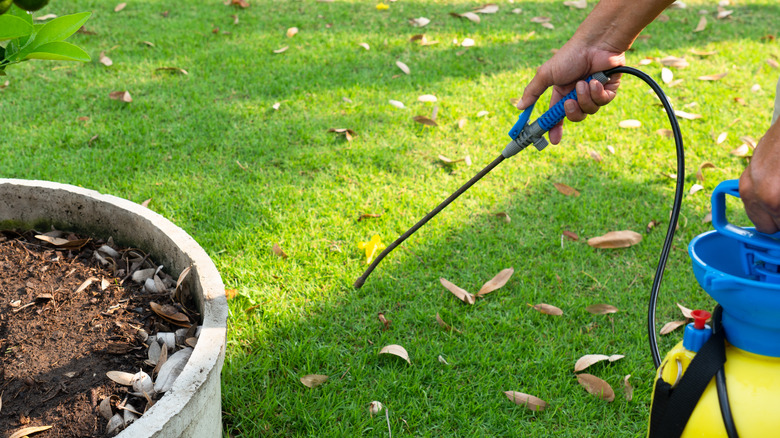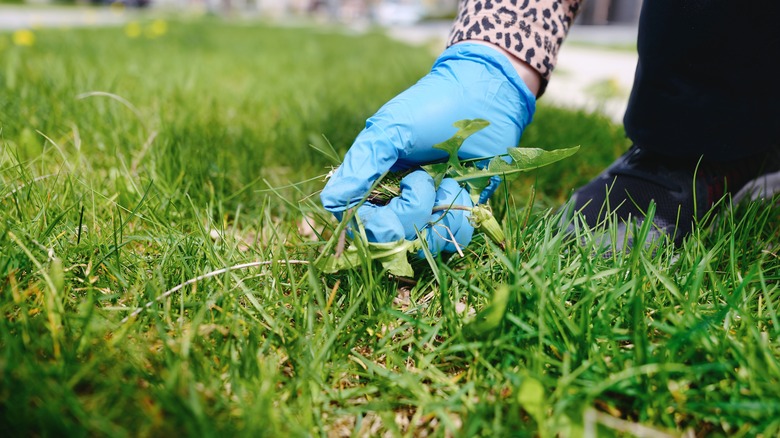Is Atrazine Weed Killer Safe To Use? Here's What You Should Know
When weeds aren't prevented or contained, they can quickly take over a home lawn, making weed control measures essential. Despite your best efforts, though, some situations warrant the need for commercial herbicides, particularly if you see certain types of weeds in your yard. One widely available weed killer is atrazine. While the herbicide is still being investigated for potential dangers to humans, research suggests atrazine has adverse effects on numerous other species.
Atrazine is a common herbicide used in professional and agricultural settings, although there are some home lawn care products containing this chemical, too. Despite its widespread use, some experts have raised concerns over the harmful effects of atrazine. While the current evidence shows atrazine is possibly dangerous to humans after exposure to large amounts only, the long-term effects of the herbicide's presence in soil and water are still being studied. Some of the more significant concerns involve possible disruptions to hormonal health in humans. If you do decide to use atrazine to control weeds in your yard, the best way to prevent harmful health effects is to follow all product instructions carefully to help avoid excessive exposure.
Preventing the need for atrazine in your yard
As of right now, scientists believe the amount of atrazine in the environment is too low to cause significant human health problems and that you would need to inhale or ingest a large amount of this herbicide to experience such issues. It's also worth noting that atrazine and weed killers cannot be sold on the market without testing and regulation. Nevertheless, the use of atrazine, like other herbicides, can be concerning for families, especially if you have children or pets who play directly on turf. If you'd rather not take these risks, know that commercial herbicides are not your only option for weed control; there are substitutes for herbicide weed killers.
First, you might consider the overall health of your lawn. When grass is kept healthy with the right amount of water and by fertilizing your lawn, it is more likely to ward off potential invasions from weeds. Also, weeds tend to grow first in bare parts of your lawn, so you may need to address these spots to help ward of future weeds. If you do start to notice weeds cropping up, you can literally take the situation into your own hands by pulling weeds before they have a chance to spread. Additionally, mowing your lawn to the right length can also maintain grass health, so it is less likely to be taken over by weeds. If these preventive measures fail, it may be time to reach out to a lawn care professional for advice.

